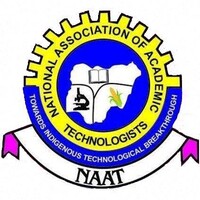The National Association of Academic Technologists (NAAT) has put the Federal Government on notice with a 21-day ultimatum to settle the five and a half months of unpaid salaries for its members, as well as to address several other pressing demands. This ultimatum emerged from discussions held during NAAT’s 56th National Executive Council meeting in Taraba State. The letter, which was addressed to the Minister of State for Labour and Employment and signed by NAAT’s President, Ibeji Nwokoma, cautioned that the union would initiate a withdrawal of services at universities if the government fails to act before the deadline, which began on September 30. The communication was also distributed to the Nigeria Labour Congress and the National Universities Commission, underscoring the union’s determination to escalate their grievances if required.
The letter emphasized the urgency of the situation, describing how the government has repeatedly failed to deliver on its commitments regarding the payment of withheld salaries, even after a presidential directive was issued over five months ago. The failure to comply with these promises, according to NAAT, has left the union with little choice but to resort to more drastic measures. In addition to the salary payments, the association also pointed out other unresolved issues that need to be addressed, such as the payment of minimum wage arrears owed to some NAAT members and various infrastructure inadequacies at public universities, including dilapidated laboratories and obsolete equipment.
NAAT reiterated that upon the expiration of the three-week ultimatum, the organization would feel compelled to undertake industrial action if no satisfactory response is received from the government. They expressed disappointment that a previous strike initiated in March 2022, which concluded in August 2022 after intervention from the then Minister of Education, resulted in little more than promises that have not been fulfilled, including the renegotiation of the 2009 FGN/NAAT Agreement. The continued neglect of these issues has led to frustration among the union’s members, who feel their collective concerns are being ignored.
Compounding the frustration are reports indicating that other unions, such as a sister association, received payments for withheld salaries while NAAT members have been left waiting. This disparity has only fueled resentment within the ranks of academic technologists, who argue that a lack of financial support hampers their ability to maintain educational standards in Nigerian universities. The structural issues facing these institutions, as highlighted by NAAT, include insufficient funding for upgrading laboratories and workshops, which further jeopardizes the educational experience for students.
In light of these ongoing challenges, NAAT’s President made it clear that the union seeks to resolve the matter through dialogue but emphasized the need for urgent governmental action. The association pointed out that the Federal Government’s employment of a ‘No-Work-No-Pay’ policy has been particularly damaging, arguing that it contravenes the proper procedures outlined in Nigerian labor laws and has contributed to the severe financial strain faced by its members. Through their ultimatum, NAAT is signaling a redirection towards more confrontational tactics to ensure that their rights are not only recognized but respected and enforced.
As the ultimatum deadline approaches, the call for recognition of the needs of academic technologists in Nigeria becomes increasingly critical. The stakes are high as unresolved issues threaten to disrupt academic activities in universities across the country. If the Federal Government does not engage in meaningful negotiations to address these pressing matters, NAAT’s members may be forced to take industrial action, further complicating the landscape of higher education in Nigeria. The resolution of this crisis hinges on the government’s willingness to not only acknowledge the valid concerns raised by NAAT but also to act decisively to fulfill its commitments, thereby preserving the educational integrity of public universities in the nation.














